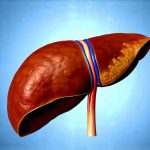Our guts are often underestimated, yet they play a crucial role in overall health. Beyond simply digesting food, our gut microbiome – the trillions of bacteria residing within us – impacts everything from immunity to mental wellbeing. In today’s world, with processed foods and environmental toxins commonplace, supporting gut health is more important than ever. Many people seek ‘detoxes’ involving restrictive diets or expensive supplements, but often overlook a powerful and readily available solution: food! This article will explore foods that naturally support the body’s own detoxification processes, focusing on promoting a healthy gut environment.
The concept of “detoxing” can be misleading; our bodies are constantly detoxifying themselves through organs like the liver and kidneys. What we can do is provide these systems with the tools they need to function optimally. A healthy gut aids this process significantly, as it’s involved in eliminating waste and processing toxins. Focusing on whole, unprocessed foods rich in fiber, antioxidants, and beneficial compounds is far more effective – and sustainable – than quick-fix detoxes.
Foods Rich in Prebiotics & Probiotics
A cornerstone of gut health is a thriving microbiome. This means nourishing the good bacteria that live within us. We can do this through two key strategies: providing prebiotics (food for the bacteria) and probiotics (the bacteria themselves). Fermented foods are fantastic sources of probiotics, introducing beneficial microorganisms directly into your gut. Think yogurt (with live cultures), kefir, sauerkraut, kimchi, kombucha, and miso. These foods not only introduce good bacteria but also aid digestion and nutrient absorption.
Prebiotics, on the other hand, feed the existing good bacteria in your gut, allowing them to flourish. Foods rich in prebiotics include garlic, onions, leeks, asparagus, bananas (slightly green are best), oats, apples, and cocoa. Combining both prebiotic and probiotic-rich foods is a powerful way to cultivate a diverse and resilient microbiome. Don’t be afraid to experiment with incorporating these into your daily diet – even small amounts can make a difference!
Fiber-Forward Foods for Gut Cleansing
Fiber isn’t just about regularity; it’s essential for gut health and detoxification. There are two main types of fiber: soluble and insoluble. Soluble fiber dissolves in water, forming a gel-like substance that helps lower cholesterol and blood sugar levels while feeding beneficial gut bacteria. Good sources include oats, barley, apples, citrus fruits, carrots, and beans. Insoluble fiber adds bulk to stool, promoting regularity and preventing constipation – crucial for eliminating waste products.
Insoluble fiber is found in whole grains, wheat bran, vegetables like broccoli and cauliflower, and nuts and seeds. A diet rich in both types of fiber supports a healthy digestive system, reduces inflammation, and aids the body’s natural detoxification processes. Aim to gradually increase your fiber intake to avoid bloating or discomfort – and remember to drink plenty of water!
Specific Foods for Liver Support
The liver is our primary detoxifying organ, responsible for processing toxins and waste products. Certain foods can directly support liver function. Cruciferous vegetables like broccoli, cauliflower, cabbage, Brussels sprouts, and kale contain compounds that help the liver neutralize toxins. These veggies are rich in glucosinolates, which convert into substances that assist detoxification enzymes. Beets are another excellent choice, containing betaine, a compound shown to protect liver cells and improve bile flow – essential for eliminating waste.
Adding turmeric to your diet is also beneficial due to its active compound, curcumin, known for its anti-inflammatory and antioxidant properties. Curcumin supports liver health by protecting against damage from toxins and promoting detoxification pathways. Incorporating these foods into your meals isn’t just about ‘detoxing’; it’s about actively supporting the organ responsible for keeping our bodies clean and healthy.
Hydration & Herbal Teas
Don’t underestimate the power of water! Staying adequately hydrated is fundamental to gut health and detoxification, as it helps flush out waste products and keeps everything moving smoothly. Aim for at least eight glasses of water daily, or more if you are active or live in a hot climate. Beyond plain water, herbal teas can also contribute to gut cleansing.
Ginger tea aids digestion and reduces inflammation, while dandelion root tea supports liver function and promotes detoxification. Peppermint tea can soothe digestive discomfort and relieve bloating. Remember that these teas should be considered supportive additions to an overall healthy diet – they aren’t a substitute for real food or adequate hydration.
Ultimately, the best way to ‘detox’ your gut is not through restrictive diets but by consistently nourishing it with whole, unprocessed foods. Focusing on fiber-rich fruits and vegetables, fermented foods, prebiotic sources, and staying well-hydrated will create an environment where beneficial bacteria thrive, supporting natural detoxification processes and promoting long-term health and wellbeing. This isn’t about quick fixes; it’s about building sustainable habits that support your body’s innate ability to heal and cleanse itself.


















